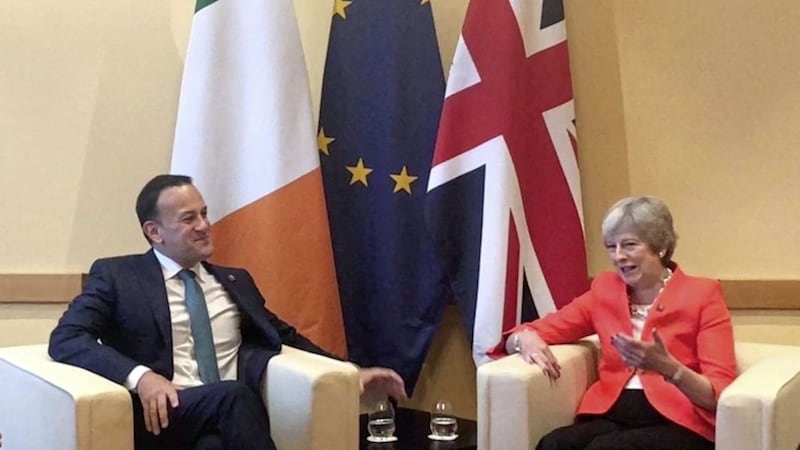While Britain is withdrawing from the European Union, Ireland's opposition to Brexit is driving this country closer to Brussels and Berlin.
On the basis that our enemy's enemy is our friend, Brexit has pushed Ireland to become firmly allied with 26 European states, some of them with politics and policies ranging from the unethical to the scary.
Brexit is the subject of debate and discussion, but Ireland's shift in the opposite direction is passing largely unnoticed.
The contrasting journeys of the two states will have a significant impact on society, economy and politics within and between both countries. While the British (or some of them) aspire to the creation of a worldwide trading empire, the Irish are heading for the role of semi-colonial subjects in a new European empire (a view with which you will no doubt disagree).
These two contrasting developments will have lasting consequences for a partitioned island.
Evidence for the two countries' opposing journeys came last week in Salzburg, when EU leaders ambushed Theresa May, who believed she was going to discuss the creation of a new EU-UK free trade area.
Her proposals were both complex and confusing, but they were a significant divergence from the lunatic fringe of her party. The EU refused to negotiate. Angela Merkel reportedly said Britain must "suffer" because of Brexit and French president Macron claimed that those who backed Brexit were liars (presumably including the 17.5 million liars who voted for it).
Leo Varadkar was there, passing the ammunition to Merkel and Macron, when past Irish experience in European trenches might have made him more politically aware. Instead of confronting Mrs May and the DUP, perhaps the Taoiseach might have more usefully tried to talk to them first. After all, unlike the other 26 states, Ireland will have to live with the post-Brexit border.
While it is difficult to have sympathy for a Conservative prime minister, it is hard to see how Mrs May is different from EU leaders. Jean-Claude Juncker, President of the European Commission, for example, developed a system of tax avoidance for multi-national companies when he was prime minister of Luxembourg.
He was recently deemed guilty on four counts of maladministration for promoting a key ally to the post of EU secretary general and earlier this month he said that the EU must become an economic and military power, with its foreign policy determined by a 55 per cent majority vote of member states.
While the 1916 leaders suggested that they served neither king nor Kaiser, but Ireland, modern Irish nationalism is firmly in the Kaiser's camp. It is hard to understand why. Long before a Brexit referendum was proposed, this column argued for UK withdrawal from the EU in favour of a Norway-style relationship, which allows trade with non-EU countries, gives total political freedom from the EU and guarantees access to the single market.
This proposal is now strongly supported by Irish nationalists as the ideal solution for Brexit. They have not suggested that a similar move by Ireland might significantly enhance the concept of Irish freedom - or does nationalism no longer cherish freedom? If not, when was it abandoned, who made the decision and what does political nationalism now stand for?
Led by Sinn Féin, nationalists say that the EU is good for Ireland. However, in 2009, Mary Lou McDonald said that the EU's Lisbon Treaty would mean lower wages, less voting power for Ireland, a requirement to increase each state's military capabilities and appropriation of national budgets by the EU to facilitate common foreign and military policies.
She was right. But now SF supports the EU it once opposed and is a strong advocate of political union, in which states like Denmark categorise the children of poor immigrants as "ghetto children". They are taken from their parents for 25 hours a week for compulsory instruction in what are called "Danish values". Even Theresa May has not gone that far.
In 1973 Ireland joined the Common Market, which was an economic trading partnership. Today it is a member of the European Union, which is becoming a single political state, just as the Act of Union joined Ireland to Britain in 1801. The enthusiasm with which Ireland is now embracing that union shows an interesting disregard for the lessons of Irish history and while Mrs May is no friend of Ireland, the collapse of the Irish economy ten years ago showed that the EU is no friend either.
But in our haste to oppose Britain, which is understandable, we have embraced the EU in a manner we may well regret. That is the unspoken tragedy of Brexit.









